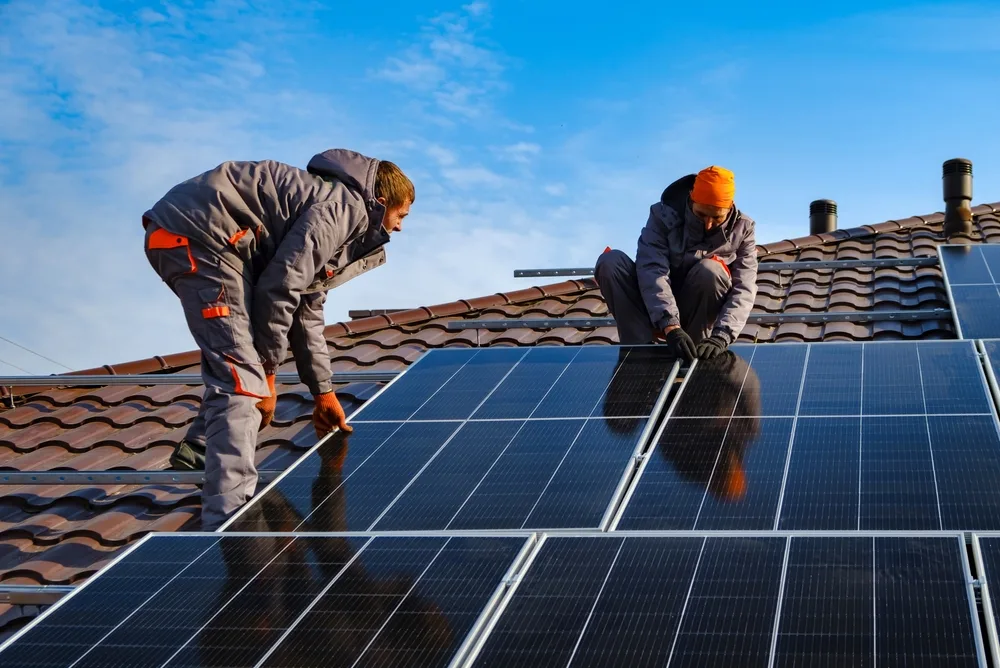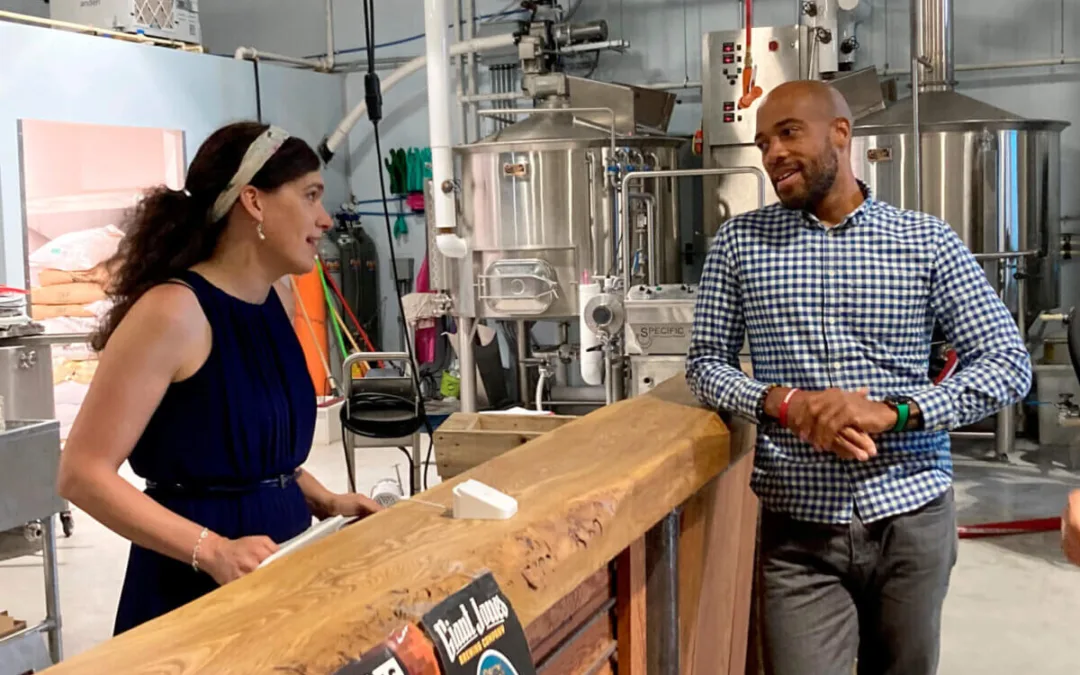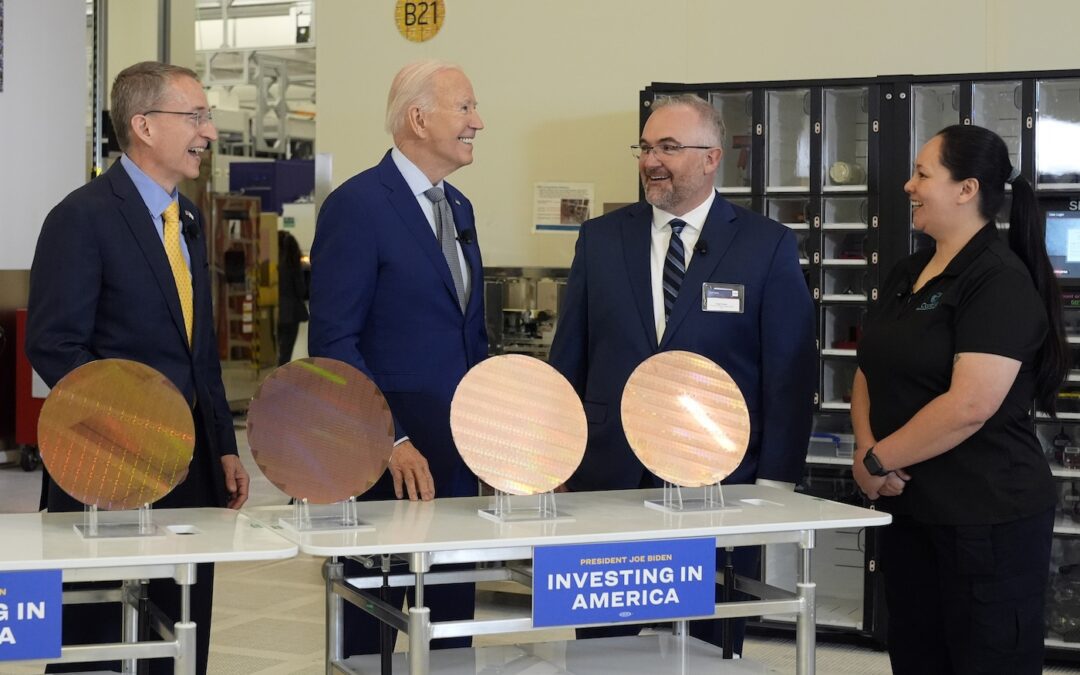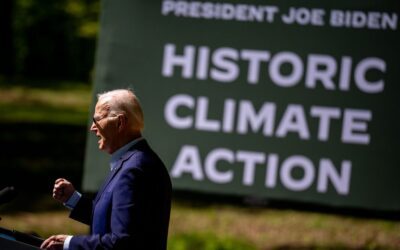
Photo via Shutterstock
Smoke from Canadian wildfires enveloped much of Wisconsin last week, leaving Milwaukee, Madison, and other communities with among the worst air quality in the world and providing a reminder that extreme weather incidents caused by climate change won’t respect borders.
The smoggy, gray skies the state endured also underscored the urgency of addressing climate change, particularly by reducing emissions and transitioning to clean energy sources.
Scientists have been sounding the alarm over human-induced climate change for decades, and while some politicians, government agencies, and companies have been ignoring, downplaying, or lying about the impacts, others have heeded these warnings and taken action—while also creating job opportunities for community members.
In Madison, the city’s engineering division has launched the GreenPower program, which trains people for employment opportunities in solar energy and electrical industries.
The program’s goal is to ultimately increase the city’s generation of renewable energy, while decreasing its carbon pollution—a key driver of climate change and extreme weather. Trainees in the program work alongside electricians to install solar photovoltaic systems on city facilities; these are panels installed for the conversion of thermal energy into electricity.
Since these systems do not produce air pollution or greenhouse gas when operating, installing them ultimately helps to mitigate the effects of climate change.
Jose Wanta is a Madison native who’s been trained through this program. He’s been working with GreenPower for the past four years, and now, at 21, he’s an electrical apprentice.
Wanta started working with GreenPower straight out of high school, and says that he’s loved the experience.
“We get paid to do what we love,” he said.
He says that he didn’t always know that working in clean energy was the right path for him, but that once he started working with the city’s electricians, he knew very quickly that this is what he was meant to do.
“Working with Master Electrician Matt Parks, he really expressed how much fun it is to work with electricity, as well as how dangerous it can be,” Wanta said. “I think being younger, the danger kind of excited me. I just fell in love with it, I really did.”
Wanta thinks that learning how to use clean energy is the primary issue of our time, and that if we as a society don’t start paying real attention to the harm we’ve done to the environment, “we’re going to regret it.”
“Going green is completely the right path” for the United States, he added.
In addition to the work he’s done with photovoltaic systems, Wanta has also learned about electric vehicles, and even electric fire trucks.
Wanta’s experience is one that will need to be replicated all across Wisconsin—and the country—if the U.S. is to effectively transition to clean energy sources.
The Biden administration has focused on speeding up that transition, primarily with the passage of last year’s Inflation Reduction Act (IRA), which represents the largest-ever national investment in fighting climate change.
The law creates new tax credits and incentives to spur industries and utilities towards solar, wind, hydropower, and nuclear energy, and also provides new consumer rebates to make it easier and more affordable for American households to adopt clean energy products.
The IRA is expected to create up to 9 million jobs over the next decade, according to one estimate, while also reducing premature deaths from air pollution and helping the U.S. dramatically reduce climate change-causing emissions.
Earlier this month, researchers at Dartmouth College and Princeton University also released a working paper funded by the BlueGreen Alliance which found that the incentives in Biden’s signature climate law will dramatically lower the cost of solar and wind energy projects and offer wind and solar developers an “airtight business case” to use American manufactured parts and pay workers fair wages.
The paper found that the law will create demand for up to 1.3 million new solar jobs and 250,000 new wind-related jobs by 2035; make the cost of solar panels manufactured and assembled domestically more than 30% cheaper compared to imported modules; and lower the cost of domestically-made onshore and offshore wind components, such as towers and blades, and make them cheaper than imported products for the first time.
Wanta believes the Inflation Reduction Act is a great investment, but he thinks that the federal government needs to be even more involved in solving the climate change crisis.
“I think the push [to solve it] is a great thing,” he said. “But they need to pay more attention…before we’re too far gone.”
Wanta encourages others to look into the GreenPower program if they’re interested in learning more about clean energy. To learn more, click here.

Think this is hot?! The number of 90+ days is expected to triple in Wisconsin
We expect summers to be hot. But dangerous temperatures are an entirely different beast. Every year, approximately 1,300 Americans die from exposure...

From the top: What is this Inflation Reduction Act that’s so important to the presidential election?
It’s part of President Biden’s legislative agenda—the most productive in generations, yet few Americans know all the details of how it improves...

Wisconsinites need to know how they can benefit from Biden’s clean energy efforts. Mandela Barnes is on it.
The one-time head of the governor’s climate change task force now helps connect Wisconsinites to historic levels of funding for energy efficiency...

Opinion: A focus on reforming regulations is the final piece of President Biden’s manufacturing agenda
Commentary from former Lt. Gov. Mandela Barnes If you want something built right, build it in Wisconsin. As the son of a third-shift autoworker and...




